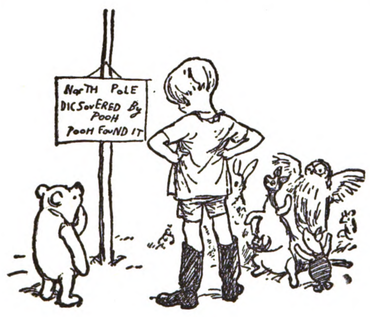Resolutions
 We start 2022 with some catch-ups.
We start 2022 with some catch-ups.
On Tuesday, the verdict came down in the trial of Theranos founder Elizabeth Holmes: guilty on four counts of wire fraud, acquitted on four counts, jury hung on three. The judge said he would call a mistrial on those three, but given that Holmes will already go to prison, expectations are that there will be no retrial.
The sad fact is that the counts on which Holmes was acquitted were those regarding fraud against patients. While investment fraud should be punished, the patients were the people most harmed by Theranos' false claims to be able to perform multiple accurate tests on very small blood samples. The investors whose losses saw Holmes found guilty could by and large afford them (though that's no justification). I know the $350 million collectively lost by Trump education secretary Betsy DeVos, Rupert Murdoch, and the Cox family is a lot of money, but it's a vanishingly tiny percentage of their overall wealth (which may help explain DeVos family investment manager Lisa Peterson's startlingly tcasual approach to research). By contrast, for a woman who's already had three miscarriages, the distress of being told she's losing a fourth, despite the eventual happy ending, is vastly more significant.
I don't think this case by itself will make a massive difference in Silicon Valley's culture, despite Holmes's prison sentence - how much did bankers change after the 2008 financial crisis? Yet we really do need the case to make a substantial difference in how regulators approach diagnostic devices, as well as other cyber-physical hybrid offerings, so that future patients don't become experimental subjects for the unscrupulous.
***
On New Year's Eve, Mozilla, the most important browser that ">only 3% of the market uses, reminded people it accepts donations in cryptocurencies through Bitpay. The message set off an immediate storm, not least among two of the organization's co-founders, one of whom, Jamie Zawinski, tweeted that everyone involved in the decision should be "witheringly ashamed". At The Register, Liam Proven points out that it's not new for Mozilla to accept cryptocurrencies; it's just changed payment providers.
One reason to pay attention to this little fiasco is that while Mozilla (and other Internet-related non-profits and open software projects) appeal greatly to the same people who care about the environment and believe that cryptocurrency mining is wasteful and energy-intensive and deplore the anti-government rhetoric of its most vocal libertarian promoters, the richest people willing to donate to such projects are often those libertarians. Trying to keep both onside is going to become increasingly difficult. Mozilla has now suspended its acceptance of cryptocurrencies to consider its position.
***
In 2010, fatally frustrated with Google, I went looking for a replacement search engine and found DuckDuckGo. It took me a little while to get the hang of formulating successful queries, but both it and I got better. It's a long time since I needed to direct a search elsewhere.
At the time, a lot of people thought it was bananas for a small startup to try to compete against Google. In an interview, founder Gabriel Weinberg explained that the decision had been driven by his own frustration with Google's results. Weinberg talked most about getting to the source you want more efficiently.
Even at that early stage, embracing privacy was part of his strategy. Nearly 12 years on from the company's founding, its 35.3 billion searches last year - up 46% from 2020 - remain a rounding error compared to Google's many hundreds of billions per day. But the company continues to offer things I actually want. I have its browser on my phone, and (despite still having a personal email server) have signed up for one of its email addresses because it promises to strip out the extensive tracking inserted into many email newsletters. And all without having to buy into Apple's ecosystem.
Privacy has long been a harder sell than most privacy advocates would like to admit, usually because it involves giving up a lot of convenience to get it. In this case...it's easy. So far.
***
Never doubt that tennis is where cultural clashes come home to roost. Tennis had the first transgender athlete; it was at the forefront of second wave feminism; and now it's the venue for science versus anti-science. And now, as even people who *aren't* interested in tennis have seen, it is the foremost venue for the clash between vaccine mandates and anti-vaxx refuseniks. Result: the men's world number one, Serbian player Novak Djokovic (and, a day later, doubles specialist Renata Voracova), was diverted to a government quarantine hotel room like any non-famous immigrant awaiting deportation.
Every tennis watcher saw this coming months ago. On one side, Australian rules; on the other, a tennis tournament that apparently believed it could accommodate a star's balking at an immigration requirement as unyieldingly binary as pregnancy or the Northern Ireland protocol
Djokovic is making visible to the world a reality that privacy advocates have been fighting to expose: you have no rights at borders. If you think Djokovic, with all his unique resources, should be meeting better treatment, then demand better treatment for everyone, legal or illegal, at all borders, not just Australia's.
Illustrations: Winnie the Pooh, discovering the North Pole, by Ernest Howard Shepard, finally in the public domain (via Wikimedia.
Wendy M. Grossman is the 2013 winner of the Enigma Award. Her Web site has an extensive archive of her books, articles, and music, and an archive of earlier columns in this series. Stories about the border wars between cyberspace and real life are posted occasionally during the week at the net.wars Pinboard - or follow on Twitter.
